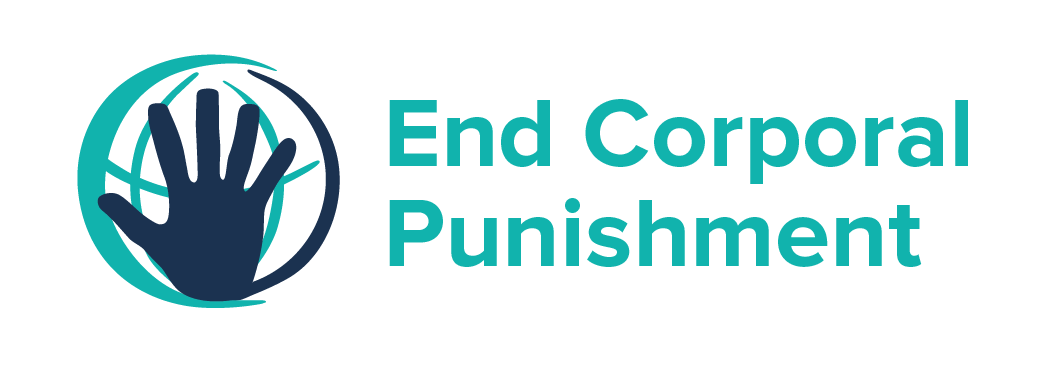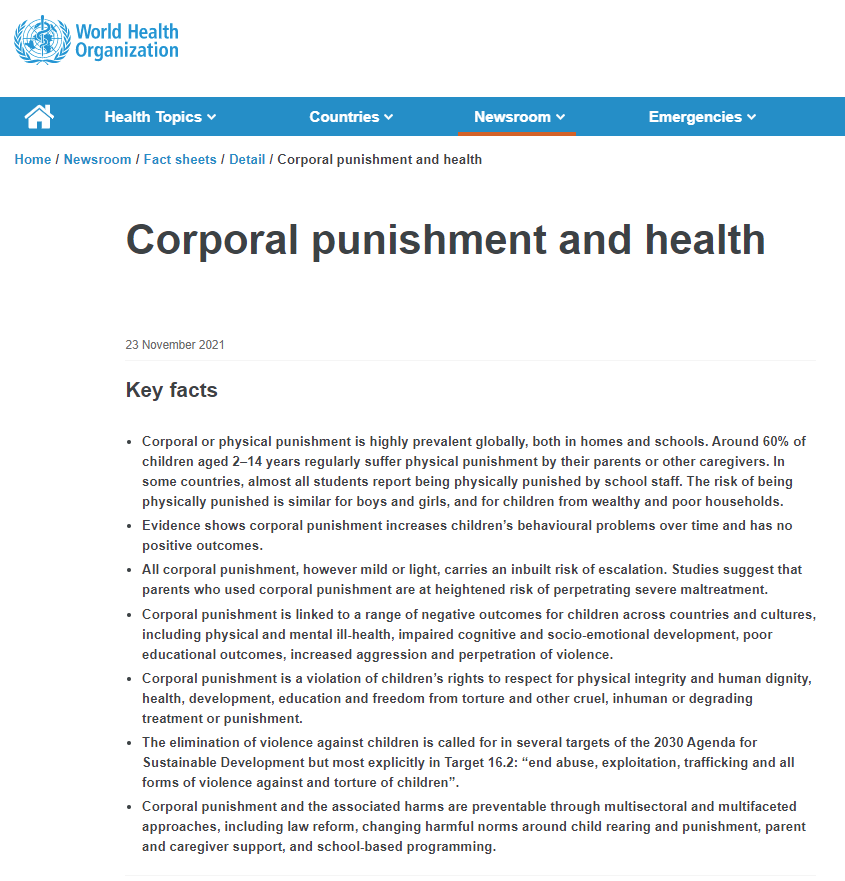End Corporal Punishment now hosted by the World Health Organization
We are excited to announce that on 1 September 2023 the World Health Organization (WHO), became the new host for End Corporal Punishment. The Initiative will also benefit from the support of a multi-partner Advisory Committee.
Corporal punishment – the most common form of violence against children - is a critical children’s rights and public health issue. Under the auspices of WHO, End Corporal Punishment will build on recent progress and continue to independently advocate for and promote the universal prohibition and elimination of all corporal punishment of children.
End Corporal Punishment will continue hosting the global corporal punishment knowledge hub https://endcorporalpunishment.org/ as well as the brand and all existing resources. Our social media handles will remain the same (see the icons below). We will stay in contact with our 7,000-strong global network of partners, with news of the latest prohibitions and legal reforms, new resources, events, and key developments.
You can sign up to receive our updates here.
We would like to thank the End Violence Partnership and Secretariat for their huge support in hosting End Corporal Punishment between 2020 and 2023. During this time Guinea, the Republic of Korea, Colombia, Zambia and Mauritius enacted full prohibition of corporal punishment of children, providing thirty-nine million more children with legal protection from violent punishment. Meanwhile, full prohibition of corporal punishment came into force in Scotland and Wales. Legal progress was also seen in many other states, for example Sierra Leone, Sudan and Islamabad Capital Territory, Pakistan enacted prohibition of corporal punishment in schools, and Cuba came very close to achieving full prohibition when it banned violent punishment of children in homes and alternative care settings.
We are also pleased to report that several governments are currently working on legislation to achieve full prohibition, including Switzerland, the Czech Republic, and Cambodia. Draft prohibiting legislation has also been tabled by Senators in Canada. We hope and expect to announce more successful law reform very soon!
Between 2020 to 2023 we completed several new publications, including a global progress report, guidance on effective implementation of prohibiting legislation available in eleven languages, an early childhood briefing, research summaries including evidence of the positive impact of enacting full prohibition of corporal punishment, and most recently a report on ending corporal punishment in schools.
We continued to make submissions to human rights examinations (e.g. UN Committee on the Rights of the Child), as well as providing technical advice and support to partners at all levels.
We would like to thank each of you for your collaboration over recent years and look forward to continuing to work together to end all corporal punishment of children!
For more information please contact: Bess Herbert (herbertb@who.int), Sonia Vohito at (vohitos@who.int) or Sabine Rakotomalala (sabinev@who.int)
- Read about the connections between corporal punishment and health.
- Find out more about global progress to end corporal punishment.


